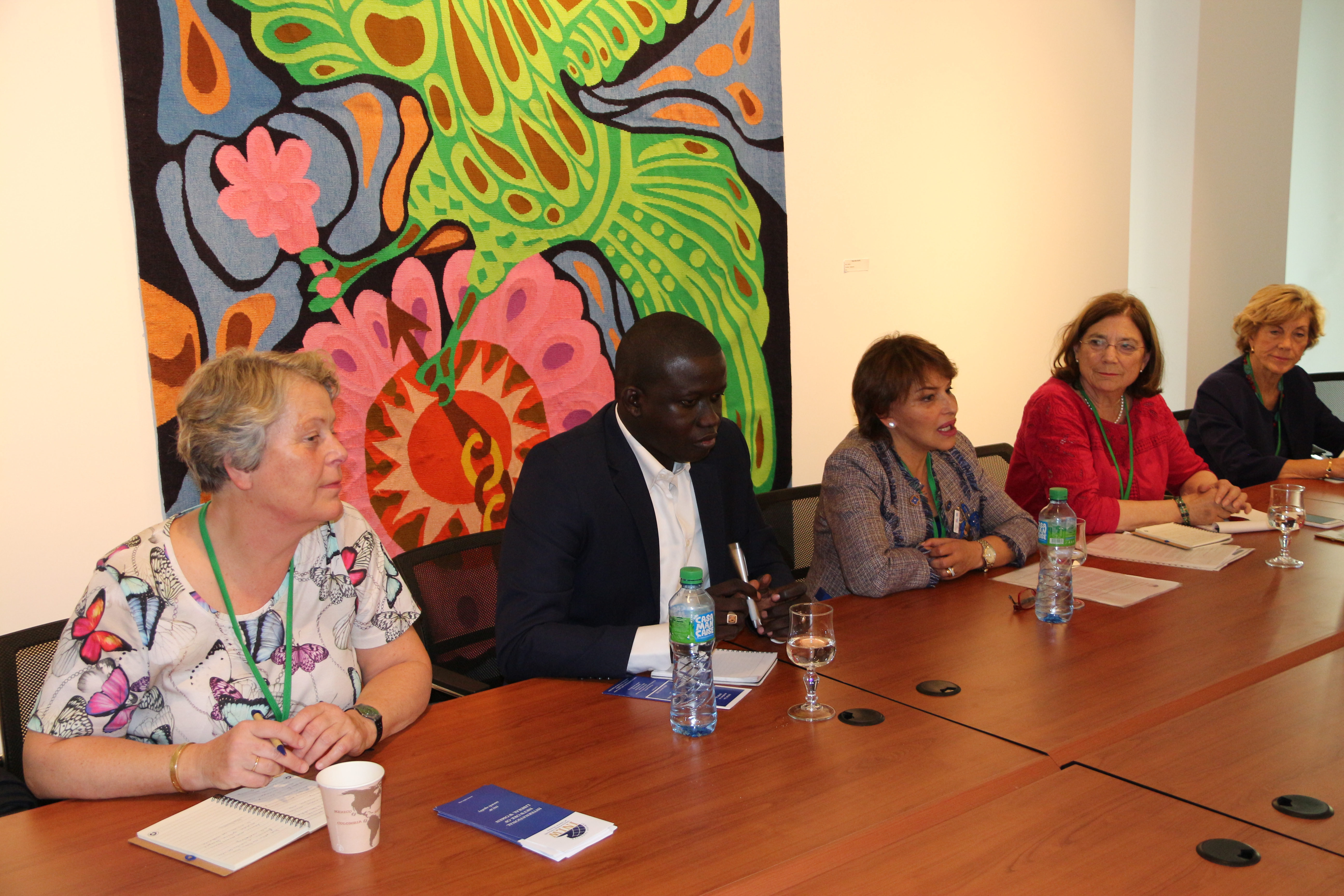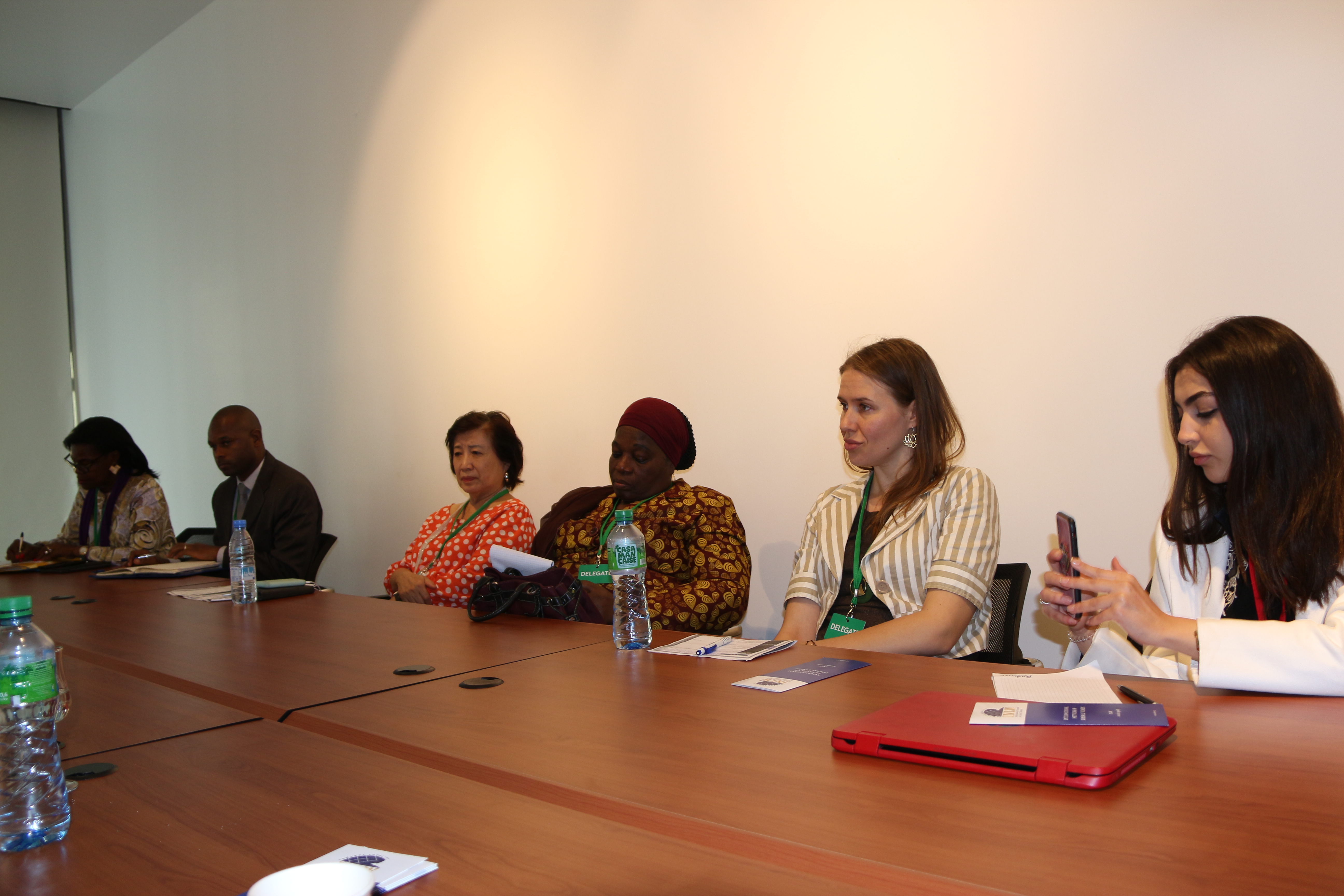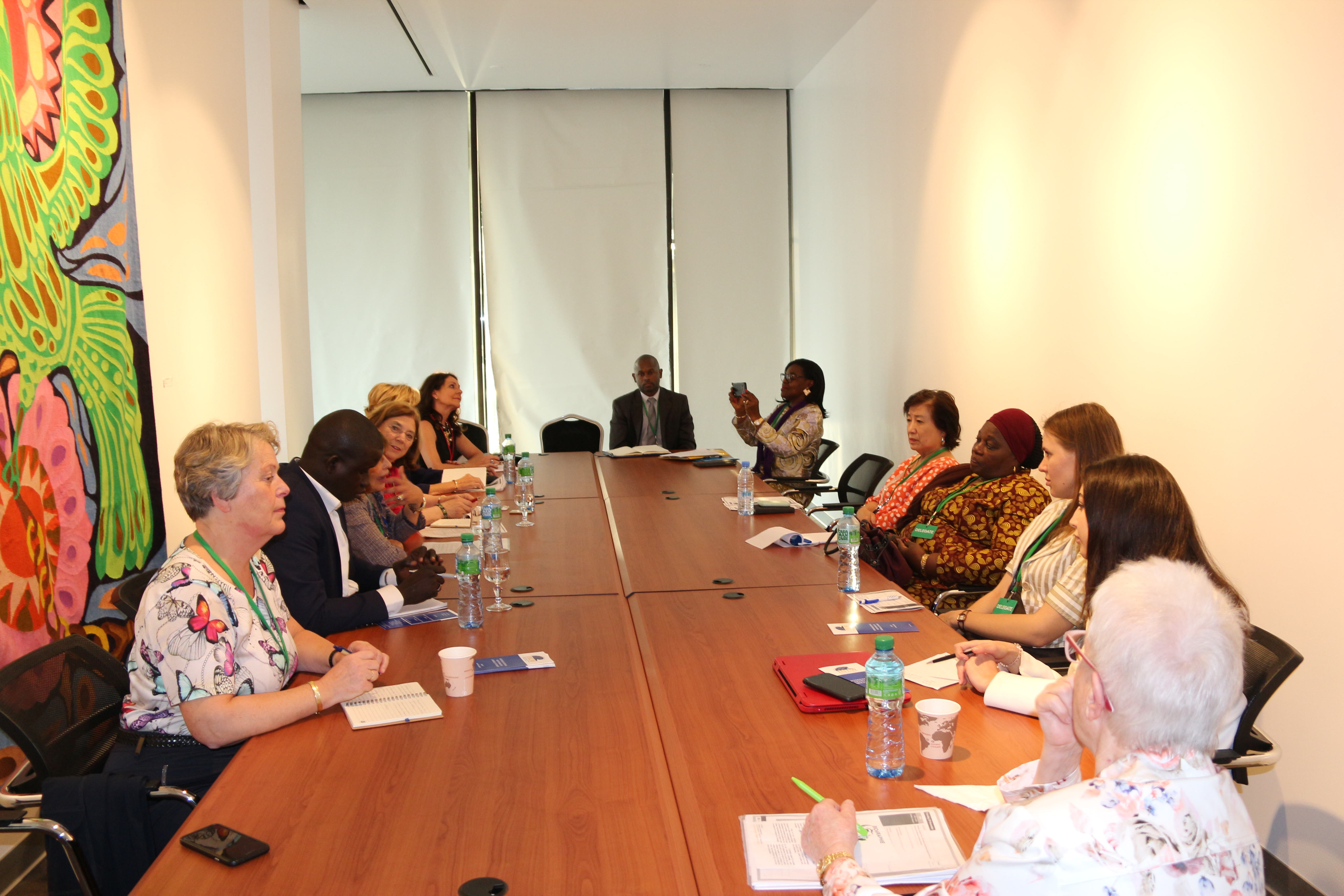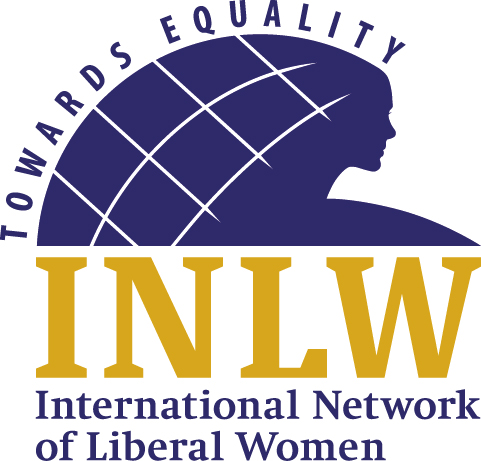 INLW had the opportunity to fill in a Break Out Session on the important subject of Women and Climate Change. Hakima El Haité, Deputy President of Liberal International was one of the members in the discussion. The moderator Margaret de Vos van Steenwijk gave both speakers time to express their experiences on this vital theme.
INLW had the opportunity to fill in a Break Out Session on the important subject of Women and Climate Change. Hakima El Haité, Deputy President of Liberal International was one of the members in the discussion. The moderator Margaret de Vos van Steenwijk gave both speakers time to express their experiences on this vital theme.
Rama Toulaye Diallo Diouf from the Ministry of Environment of Senegal gave an insight in the way Senegal handles this combination. He confirmed that the gender issue should always be included when addressing Climate Change. Women are vital in the discussion and the solutions of this Climate Change problem. In Senegal one of the many problems is the large amount of salinated water. Local women have to solve the problem for the agriculture and the fisheries. A group of women has started under their own partnership their own farm. This can tackle the problems and is successful. In Senegal the” Plan d ’action 2019” is launched to better understand the gender in environment questions. Women can submit programs to the Ministry and most of these are taken up to be carried out. The main goal is to improve the living conditions of women, by helping them to grow vegetables and to farm in a more professionalized way. Also, they are becoming better business administrators and learn to market the products. After they have added value to the products, they can get higher prices for their products.
 The government is also trying to make programs to involve more women in Parliament. Training programs are set up on many issues such as environment, entrepreneurship, agriculture, financial issues, administrative issues and marketing.
The government is also trying to make programs to involve more women in Parliament. Training programs are set up on many issues such as environment, entrepreneurship, agriculture, financial issues, administrative issues and marketing.
Women must gain their own independence and together with the Ministry they hope to improve the position of women. Hakima El Haité is glad to see that Senegal has acted after the COP 22 in Marrakech in 2017 by getting gender elements in all programs and politics. Unfortunately, although Hakima lobbied hard for gender in COP 22, there is no obligation to add gender in the country’s programs of countries which signed the agreement at COP 22. In Africa 90% of the women are having to deal with the problem of water for most of their time. The food insecurity is enormous while there is so much land, but 1,5 billion people have no access to water. Water is essential for food and for hygiene. Women are often responsible for the food security. By getting more women involved and giving them access to finance, capacity building, decision-making and negotiating positions the whole population will gain prosperity.
 In Senegal women have no right to own land, while on the other hand they must take care of the children as well as providing for their food. They must get the opportunity to become entrepreneurs. It was typical that at the COP 22 agreement there were only men present!
In Senegal women have no right to own land, while on the other hand they must take care of the children as well as providing for their food. They must get the opportunity to become entrepreneurs. It was typical that at the COP 22 agreement there were only men present!
Both speakers spoke out their appreciation for the resolution of INLW on Women and Climate Change and hoped that LI and other parties will add their support to fight for an action plan with enough available money and gender issues high on the agenda in many different partner countries in Africa.
Hakima El Haité has set up a new program “For Women in Africa” with other partners to get money for new projects to help women as much as possible. It is important to help women to heighten the security of their families and to stop the migration as a result of terrorism. One of the important projects is lighting the roads. Enough light gives women more security and thus freedom to go anywhere on their own. Another project is that in Morocco solar panels help solving water problems. As the sun is always available in Africa, the sun can give many more solutions in Africa.
 A very important project is education for girls and women. In many parts of Africa education is still not compulsory for girls. In the Cote d’Ivoire education is compulsory for all children from the age of 6. Still girls in the countryside must be stimulated to go to school, the distance is often far, and it is not very safe to travel.
A very important project is education for girls and women. In many parts of Africa education is still not compulsory for girls. In the Cote d’Ivoire education is compulsory for all children from the age of 6. Still girls in the countryside must be stimulated to go to school, the distance is often far, and it is not very safe to travel.
Both speakers are hopeful of the possibilities and new developments that are seen all over the world and are confident that Africa will become an important part of the world in the future. A lively discussion followed with examples given of the good, bad and hopeful developments in different parts of the world. The time was too short to go into more detail.

 Visit our Facebook page
Visit our Facebook page